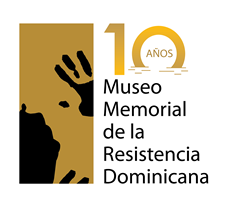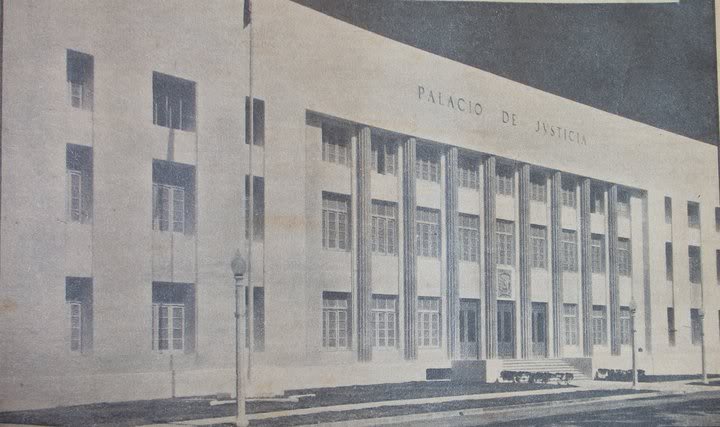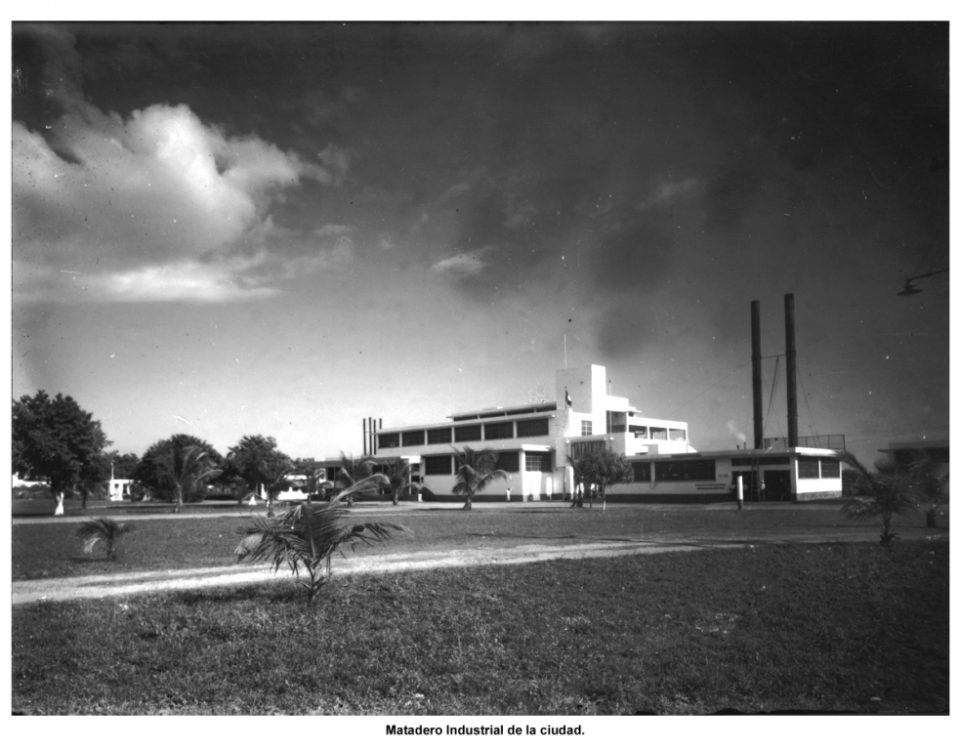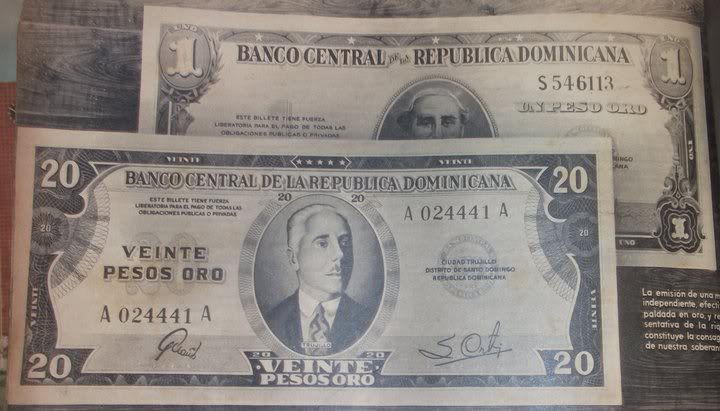The Armed Forces Myth

The myth of the Dominican industry
February 24, 2017
The Myth of Justice in the “Era of Trujillo”.
February 24, 2017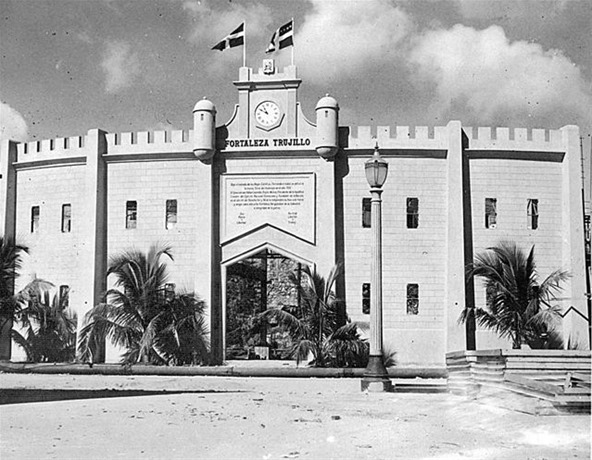
Prior to the 1st U.S. Military Occupation of 1916-1924, our nation lacked permanent armies organized in the terms required by modern military doctrines. This was prevented by the profound political and institutional instability in which our country lived for decades, due to the internal conflicts and internal wars that characterized the "era of the caudillos".
The first great effort was made at the beginning of the 20th century, during the regime of Ramón Cáceres, with the creation of the Republican Guard, which the people baptized as the "Guard of Món", but the project collapsed with the assassination of the Mocano leader in 1911.
The U.S. occupiers from the beginning set themselves the task of creating a military force composed of natives with the central purpose of achieving a more efficient control of the national territory, and naturally, to use it as part of their repressive apparatus against the different patriotic pockets of resistance that early on opened up in the eastern region of the country against that brutal intervention. Translated with DeepL.com (free version)
For this reason, when the U.S. invaders announced the creation of the Dominican National Guard through Executive Order No. 47 of April 7, 1917, a military corps that initially also served as a police force, very few young people responded to the call to enlist.
Those who answered the call to join this military force were almost all men with criminal backgrounds; most of them were poorly educated. Among those enlisted, on December 18, 1918, was Rafael L. Trujillo Molina, who up to that moment, at 27 years of age, was working as a Guarda Campestre (a kind of private police) of the Boca Chica sugar mill, owned by the United States, where he gained fame for his arbitrary and brutal behavior against the workers and always in defense of the interests of the foreigners in the sugar mill.
Before completing one month of his enlistment, on January 11, 1919, Trujillo was sworn in as 2nd Provisional Lieutenant and sent to the eastern region to assist the occupiers in the tasks of pursuing the patriotic guerrillas who confronted the foreign interveners.
In that region he was under the orders of U.S. Navy Lieutenant Colonel Thorpe, a sadist in military uniform who ordered torture and executions on suspicion alone of any peasant who was sent to his barracks.
This was the environment where Rafael L. Trujillo, who at the time of the evacuation of the U.S. troops in July 1924, had already reached the rank of captain, made his first "military" achievements.
Trujillo's military career was dizzying. That last year, when President Vásquez was in power, he was promoted to Major and Commander of the Northern Department of the National Police, based in Santiago. Three months later he was promoted to Lieutenant Colonel, Chief of Staff and on June 22, 1925, he was appointed Colonel Commander of that corps. The following year he skillfully ordered the publication of an informative organ of the P.N., called "Revista Militar" which under the direction of the journalist, former prisoner and friend, Rafael Vidal, began the exaltation of his figure as military chief in a permanent way. On August 13, 1927, Trujillo received a new promotion from President Vásquez who elevated him to Brigadier General and the following year the National Police changed its name and was converted into the National Army, but maintaining police control throughout the country.
During those years Trujillo had obtained other important achievements, among them, gaining the absolute confidence of President Vasquez, who believed that the head of the army was one of his own; he admitted several members of his family to the army and placed in all command positions men of his absolute confidence, and also, through political gossip, he managed to get Vasquez to dismiss several officers who did not share his ambitions of domination.
For that reason, when in February 1930 he betrayed the loyalty he had sworn in favor of Vasquez, participating as leader of the civil-military coup that overthrew the government, Trujillo maintained a firm control of the country's military order.
In the fraudulent electoral process that allowed Trujillo to achieve the Presidency of the Republic in 1930, the army played a fundamental role. It was openly used in the brutal repressions organized against the political leaders of the opposition, until they were forced to abandon the elections. Trujillo "won" those elections as the only candidate.
As soon as Trujillo succeeded in proclaiming himself president of the Republic, the new president began to turn the army into the main instrument for his maintenance in power. For this reason, the process of purging its ranks, which had already begun years before, was now restarted with new vigor and with the same absolute control of command posts, promotions and transfers. Trujillo's personal dominion over the army began to be absolute.
Within the framework of this personal domination and surveillance of the army, Trujillo always ensured that neither the military commanders nor the officers lasted in their positions for many years. The movements of transfers to the military chiefs of regions, provinces and commons, of officers as well as of subalterns, were permanent.
At the beginning of his first government in 1930, the two main figures in the army, the Secretary of State of War and Navy and the Chief of the Army, were two of his associates who accompanied him in the civic-military movement that overthrew Vásquez and brought him to power, General Antonio Jorge and Simón Díaz. Neither of them lasted long. In June of the following year, the Ministry of War and Navy was merged with the Ministry of the Interior and Jacinto Peynado was appointed to this position.
That same year and the following month, General Simón Díaz was replaced as Chief of the Army and that position passed to General Ramón Vásquez Rivera.
Geral Diaz was appointed by Trujillo as deputy in January 1932.en
But Jacinto Peynado did not last long in that position either, since on April 21 he was replaced by Virgilio Trujillo, the former becoming Secretary of the Presidency.
The following year the changes continued. His relative and advisor Teódulo Peña Chevalier was appointed to the Ministry of War and Interior and his sister's husband, Colonel José García, was promoted to Brigadier General and appointed Chief of the Army and General Federico Fiallo, was appointed Chief of Staff, while General Vásquez Rivera, suspected of conspiracy was dismissed, imprisoned and assassinated. Almost at the same time, the same fate befell Colonel Leoncio Blanco, also accused of conspiracy.
That year of 1933, the dictator rose to the highest rank in the military hierarchy: he appointed himself generalissimo. Shortly thereafter, in 1935, Trujillo himself assumed the command of the army, navy and aviation, while his brothers, Virgilio, Aníbal and Héctor rose to the rank of general, the latter becoming Secretary of War and Navy in 1942.
Year after year, in order to consolidate his dictatorship, Trujillo increased the number of members of the army, while its equipment and weapons were improved and the functions of surveillance and urban control of the population were also expanded. Beginning in 1933, the army began to guard the highways, establishing checkpoints at strategic points. In these places, all the occupants of the automobiles were subjected to permanent checks where they were required to present their Personal Identity Card and their Dominican Party Card. If the registered person lacked one of these documents, he was immediately detained.
For its part, the National Police, reorganized in 1936, whose chiefs were almost always army officers, in addition to being in charge of public order and the persecution of common crime, and even urban traffic control in large cities such as Santiago and the capital city, was also in charge of political espionage, for which a Secret Service Department was created within it, especially dedicated to these purposes and to the selective assassination of opponents.
Shortly thereafter, the Military Intelligence Service (SIM) was created, a department in charge of espionage, political persecutions and disappearances. Groups were created within the National Police as well as in the army, the aviation and the navy, depending on the SIM. These special bodies were also in charge of espionage within the Armed Forces and the police, in order to betray any sign of disloyalty to the tyrant within the Armed Forces.
Shortly after Luperon's failed expedition, in 1949, due to the difficulties encountered by the dictatorship in the purchase of arms abroad, the dictator initiated a project for the installation of an arms factory in the country. For this purpose, he hired in Europe several Hungarian and Yugoslavian engineers, veterans of the World War, experts in the manufacture of armaments. The head of what later became the "Army Armory" was the Hungarian veteran Alexander Kovacs, who in 1955 reached the rank of general in the Dominican army.
In that armory, medium quality weapons were manufactured, not only for the army, but also for export, but of successful sale: the Cristóbal machine gun and the Enriquillo revolver. Several hundred of these machine guns were sold to the Cuban dictator Fulgencio Batista of Cuba.
By that time his son Ramfis Trujillo, named "Honorary Colonel" at the age of seven, "had achieved by his own merit" the rank of Brigadier General and in 1952 held the position of Chief of Staff of the Air Force. The following year, when he turned 34, he was promoted to Major General.
Ramfis' presence in aviation determined a special treatment for that branch of the armed forces, for which the large air base of San Isidro was built, which was equipped with the most modern armaments and dozens of new airplanes. By 1955, the military aviation had more than a hundred airplanes, some with the latest technologies and jet propulsion, and the most modern tanks; its artillery force surpassed in quality that of the army. During the thirty-one years of the dictatorship, more than 20% of the nation's budget was destined to the maintenance of the army and the National Police.
All this powerful military force, which never participated in a war action, was the mainstay of the dictatorship and was continuously exhibited in large military parades organized two or three times a year (with the presence of Trujillo) to show their loyalty to the regime, but also to intimidate the population.
But in spite of the extraordinary controls that Trujillo always personally maintained with the help of his relatives enrolled in the military corps, and of the henchmen absolutely faithful to his person who wore the military uniform, such as Johnny Abbes and others, from the very bosom of those armed forces emerged the men who, like General Juan Tomas Diaz and Lieutenant Amado Garcia Guerrero, and the retired officers, Antonio Maza and Pedro Livio Cedeño, interpreting the feelings of the majority of the people, participated in the action, General Juan Tomas Díaz and Lieutenant Amado García Guerrero, and retired officers Antonio de la Maza and Pedro Livio Cedeño, interpreting the feelings of the majority of the people, participated in the patriotic action organized by civilian political leaders, who on May 30, 1961, with the death of the tyrant, overthrew the regime.
